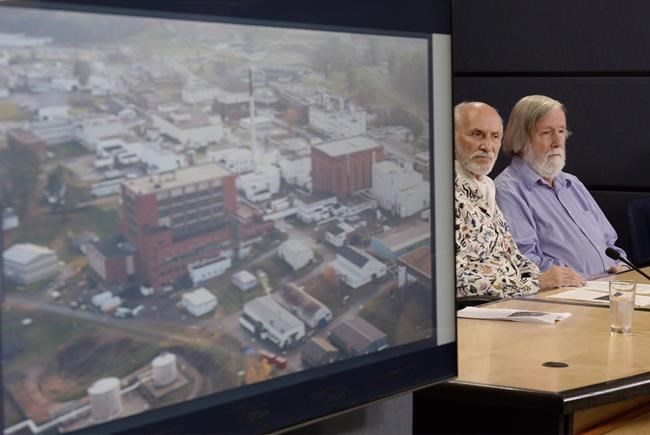Several First Nations and environment advocates have criticized a decision by Canada’s nuclear regulator to greenlight a proposed nuclear waste site near the Ottawa River.
Following an environmental assessment, the Canadian Nuclear Safety Commission has authorized construction of a waste facility on the site of the Crown-owned Chalk River Laboratories, which tests nuclear technology in Deep River, Ont., about 180 kilometres northwest of Ottawa.
The site sits within a kilometre of the Ottawa River, on the traditional unceded territory of the Algonquin Anishinaabeg peoples.
Kebaowek First Nation councillor Justin Roy, whose community is located on the other side of the Ottawa River, said his First Nation and others are reviewing the regulator's decision and will consider all options, including asking for judicial review.
"We're not going to leave any stone unturned regarding this project," he said.
The regulator said in its approval announced this week that the project is "not likely to cause significant adverse environmental effects."
Roy said the project would cause adverse environmental effects including deforestation of almost 40 hectares of old growth forest and put several animal species at risk, including black bears and eastern wolves.
"There are a number of environmental impacts that we know are going to happen," he said.
He said the approval also violates Canada's commitments under the United Nations Declaration on the Rights of Indigenous Peoples, which requires free, prior and informed consent from an Indigenous community ahead of any development on its ancestral land.
The Canadian Environmental Law Association, an organization that was involved in the review process, said it regrets the regulator's decision.
Executive director Theresa McClenaghan said her organization is concerned that radioactive contaminants would eventually leak into the surrounding wetlands and the nearby Ottawa River.
“The design of this facility is tantamount to an ordinary domestic landfill and we know that such facilities always eventually leak to the surrounding environment," McClenaghan said.
"Given that this facility is proposed to contain radioactive contaminants that would remain hazardous for thousands of years, CELA is highly concerned that this project has been given the go-ahead to proceed by the nuclear regulator.”
The proposed facility consists of an engineered containment mound, a wastewater treatment plant, and other support facilities, and it's expected to have an operating life of at least 50 years.
It will hold up to a million cubic metres of low-level radioactive waste.
The Canadian Nuclear Safety Commission launched its environmental assessment in 2016, but First Nations have said the assessment wasn’t culturally relevant, leading them to release their own report in June, which noted the area around Chalk River was never ceded by the Anishinaabeg people, nor were they consulted when the original Chalk River Laboratories site was developed in the 1940s.
This report by The Canadian Press was first published Jan. 11, 2024.
Maan Alhmidi, The Canadian Press




